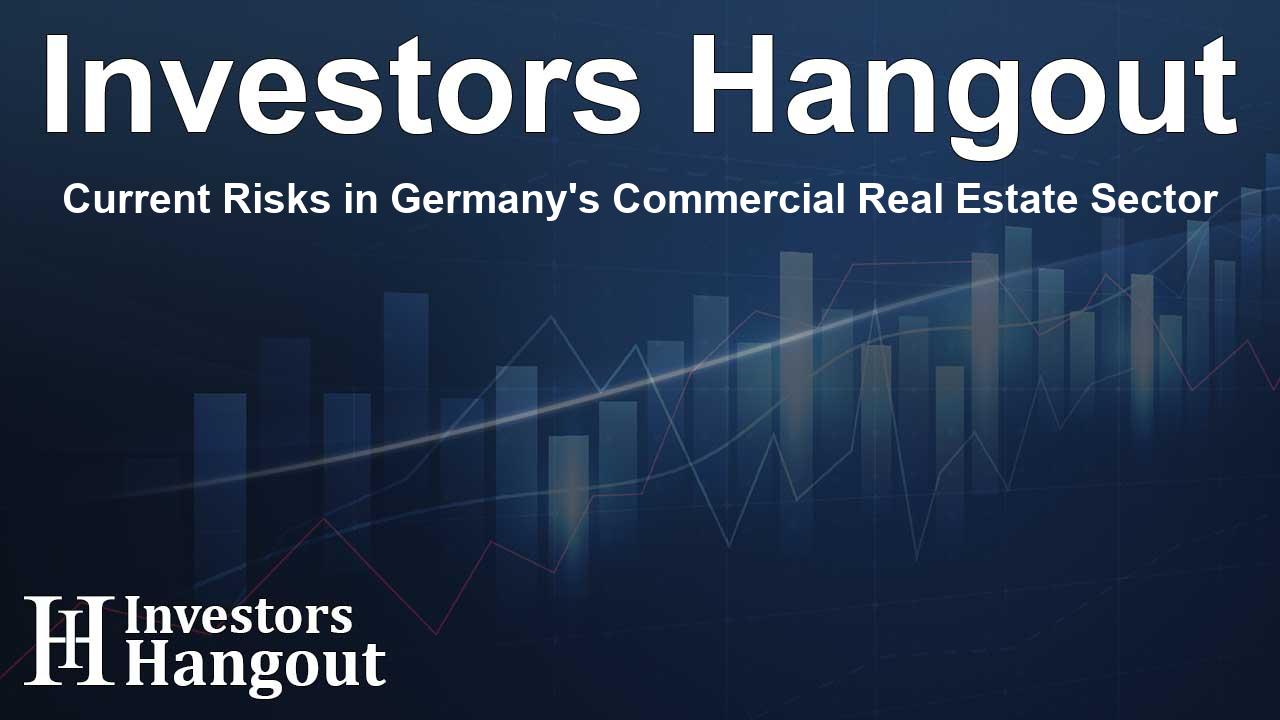Current Risks in Germany's Commercial Real Estate Sector

Understanding the Elevated Risks in Germany's Commercial Property Market
The commercial property market in Germany is drawing attention for its increasing risks, a scenario that has caught the watchful eyes of financial regulators. Following a swift series of interest rate hikes, property values have been significantly affected, leading to a more cautious approach in investment strategies.
Regulatory Concerns Over Financial Stability
Michael Theurer, an Executive Board member of the Deutsche Bundesbank, remarked that the financial landscape is grappling with acute challenges tied to geopolitical tensions and an underperforming economy. This precarious situation has made financial supervisors particularly vigilant about potential pitfalls within the commercial real estate sector.
In 2022, the European Central Bank (ECB) implemented interest rate hikes due to soaring inflation, exacerbated by the energy crisis linked to the geopolitical climate. Although the ECB has recently cut rates from 4.5% to 3.4%, the overall risk to German commercial property developers remains high, as indicated by the Bundesbank's evaluations.
Effects of Rising Interest Rates and Costs
With steep interest rates and soaring energy prices creating a challenging environment, there has been a decline in real estate prices and an uptick in credit risks. Theurer emphasized that these economic conditions have led to significant upheaval in the property market.
The DAX subsector of all real estate has unfortunately slumped to its lowest level in recent months, trading significantly lower. Notably, Vonovia, Germany's leading landlord, has experienced drastic fluctuations, having lost 44% of its market volume over the past three years, despite a recent uptick.
Resilience Amid Market Challenges
Despite these adverse conditions, Theurer noted that the German financial system has so far managed to navigate through the stringent rise in interest rates, indicating the banking system's resilience supported by robust capital reserves. Yet, vulnerabilities within the system have shown only a gradual decrease.
Interestingly, the dynamics of the commercial property market are impacting open-end retail real estate funds significantly. These funds are facing high liquidity risks, which have prompted net outflows as investors seek more promising returns elsewhere, potentially magnifying negative trends in the market.
Ongoing Economic Struggles
Germany’s economic landscape continues to reflect a state of malaise. A recent survey revealed that business activity has been contracting, with significant declines in both the services and manufacturing sectors, resulting in job losses. The Chief Economist at Hamburg Commercial Bank pointed out that any previous support from the service sector is fading.
The gross domestic product (GDP) has also seen a contraction, sparking concerns about the economy’s vitality. It reflects the tough climate businesses are facing, with adjustments in quarterly growth reflecting weaker numbers than initially predicted.
Political Factors Impacting Economic Growth
In addition to external pressures, domestic political instability has raised further concerns. Following turmoil surrounding the coalition government, which collapsed amid debates over the economic downturn, the country finds itself politically adrift until upcoming elections.
Such uncertainties weigh heavily on economic development, influencing corporate insolvency rates, which have surged alarmingly in recent months, particularly among trading companies. The Bundesbank's findings showcase rising insolvency claims across various sectors, portending a more challenging landscape ahead.
The Road Ahead for German Commercial Property
The future for Germany's commercial property market appears uncertain, with lingering geopolitical tensions posing ongoing risks. The Bundesbank continues to advocate for enhanced capital buffers to fortify banks against potential downturns, indicating a precautionary approach to managing and mitigating risks in the sector.
Frequently Asked Questions
What are the main risks currently facing Germany's commercial property market?
The primary risks include rising interest rates, inflation, and geopolitical tensions affecting the overall economy and property values.
How have interest rates impacted real estate values in Germany?
Rapid interest rate increases have decreased property values, leading to greater credit risks and volatility in the market.
What significance does the DAX subsector of all real estate have?
The DAX subsector provides insight into the performance of real estate companies in Germany, reflecting current market conditions.
What political factors could affect Germany’s economic landscape?
Domestic political instability, including coalition government challenges, has introduced uncertainty that could further harm economic growth and recovery.
How can investors navigate the current commercial real estate landscape in Germany?
Investors should remain cautious, considering liquidity risks and potential shifts in market dynamics, while keeping an eye on economic indicators and regulatory guidance.
About The Author
Contact Ryan Hughes privately here. Or send an email with ATTN: Ryan Hughes as the subject to contact@investorshangout.com.
About Investors Hangout
Investors Hangout is a leading online stock forum for financial discussion and learning, offering a wide range of free tools and resources. It draws in traders of all levels, who exchange market knowledge, investigate trading tactics, and keep an eye on industry developments in real time. Featuring financial articles, stock message boards, quotes, charts, company profiles, and live news updates. Through cooperative learning and a wealth of informational resources, it helps users from novices creating their first portfolios to experts honing their techniques. Join Investors Hangout today: https://investorshangout.com/
The content of this article is based on factual, publicly available information and does not represent legal, financial, or investment advice. Investors Hangout does not offer financial advice, and the author is not a licensed financial advisor. Consult a qualified advisor before making any financial or investment decisions based on this article. This article should not be considered advice to purchase, sell, or hold any securities or other investments. If any of the material provided here is inaccurate, please contact us for corrections.
